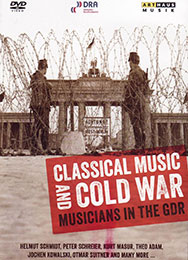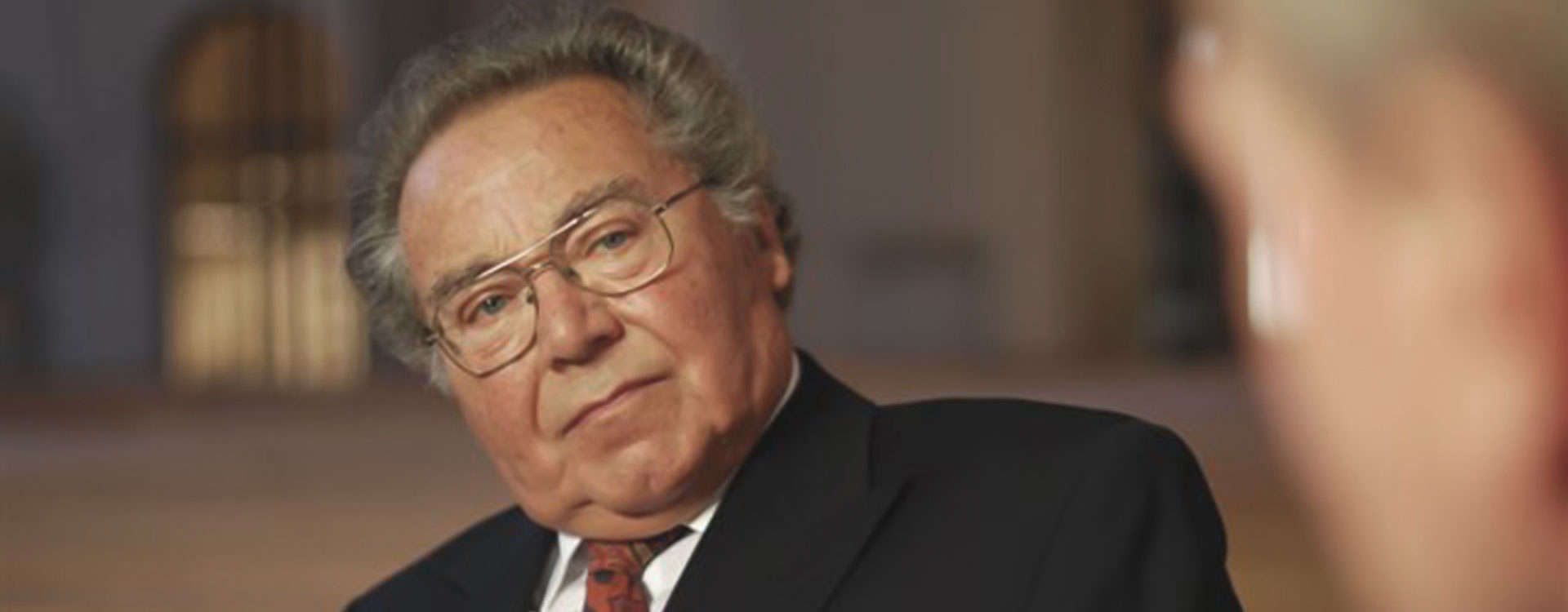
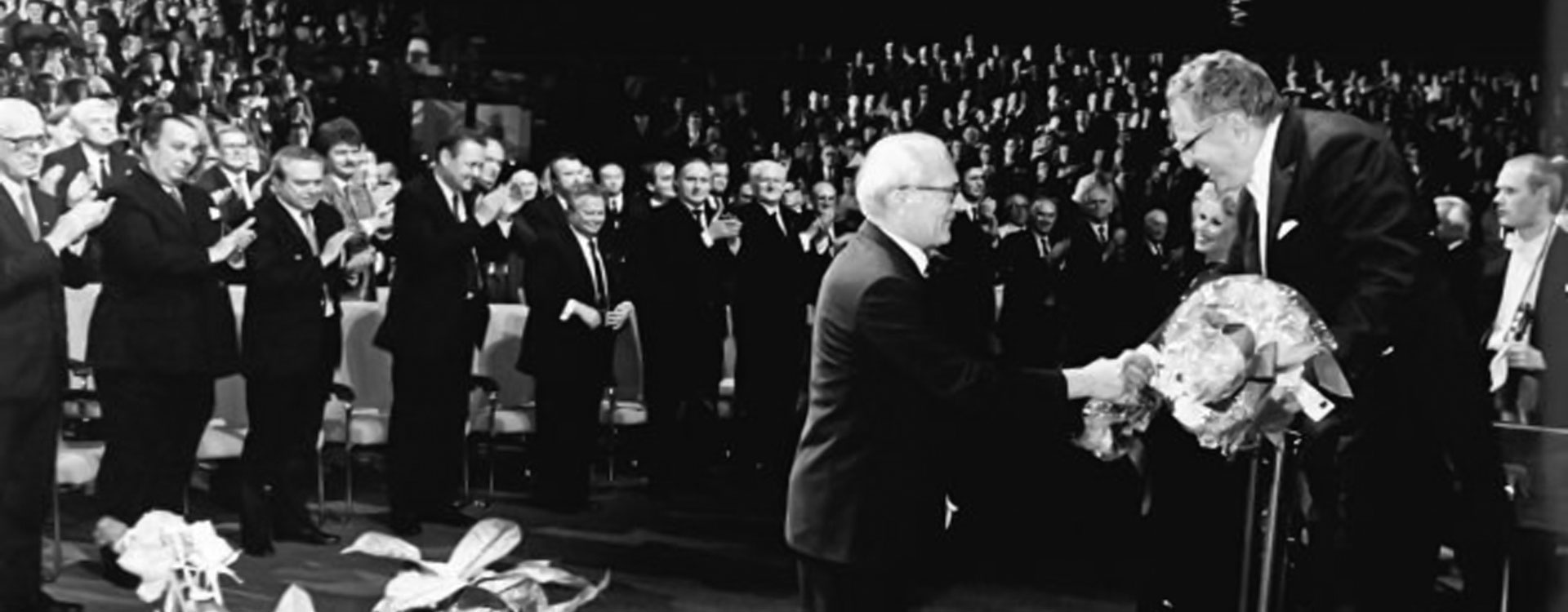
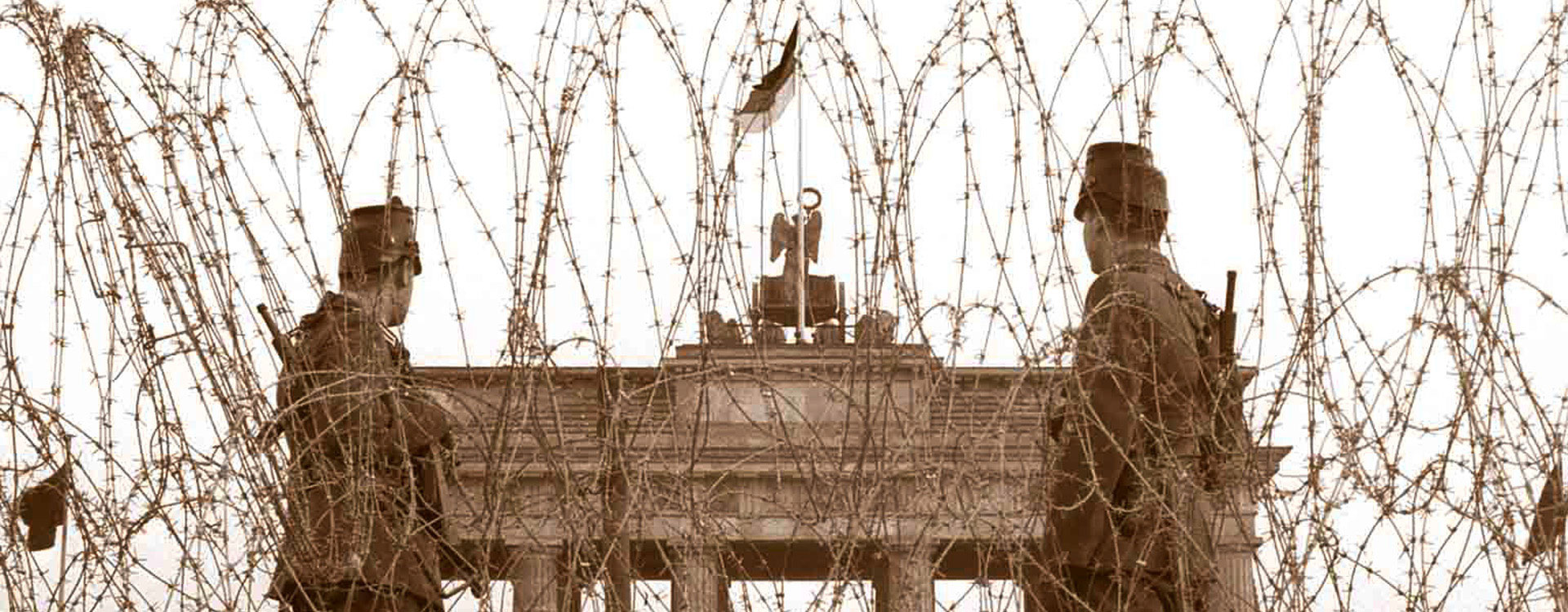
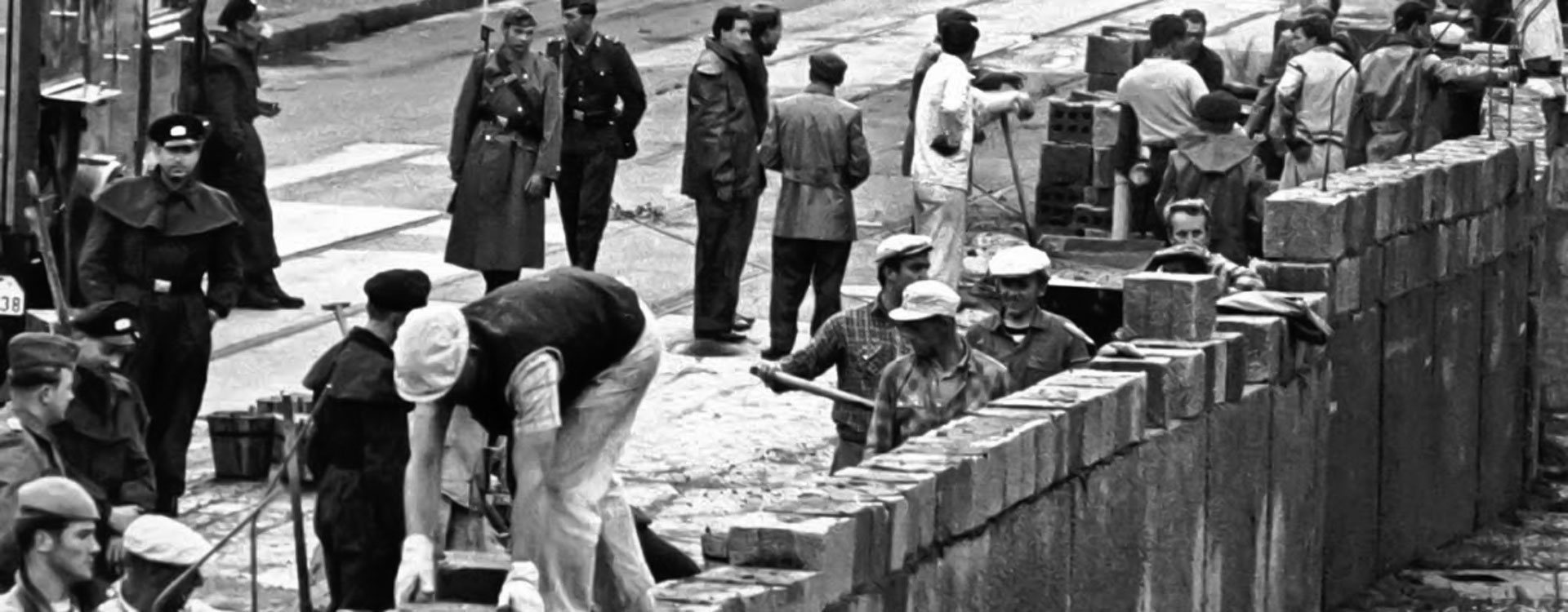
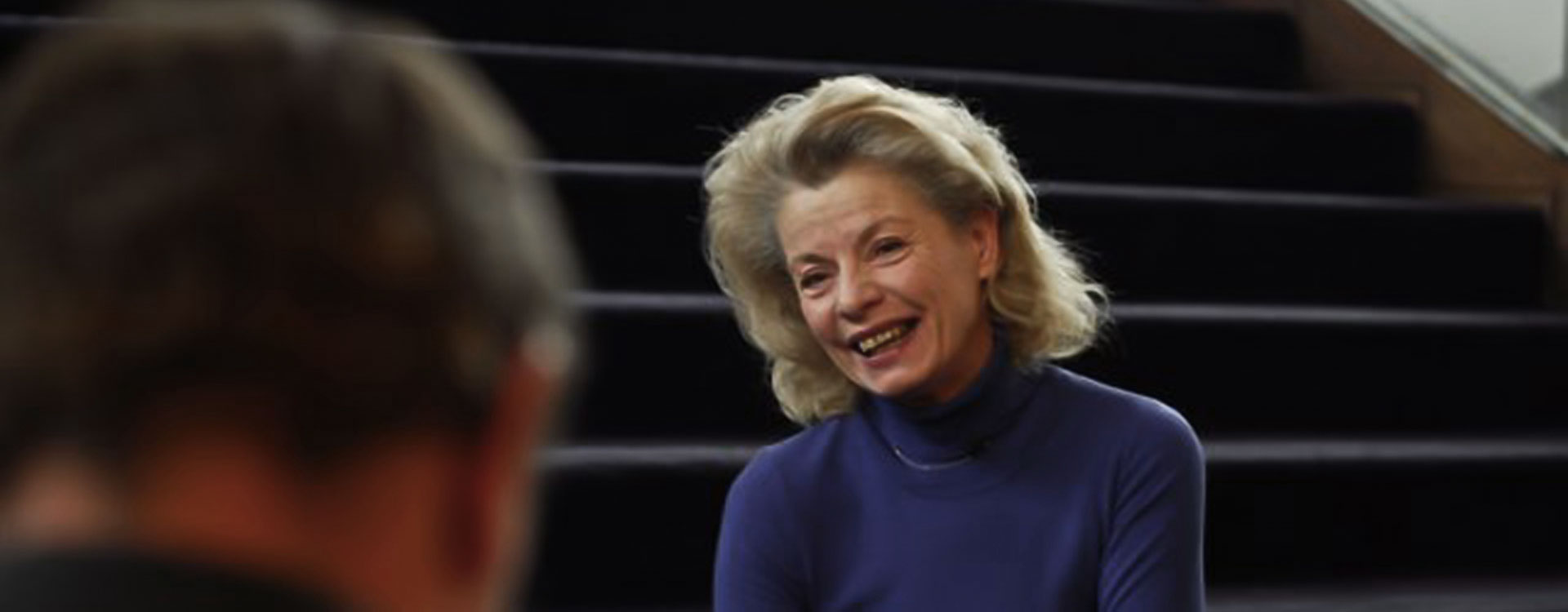
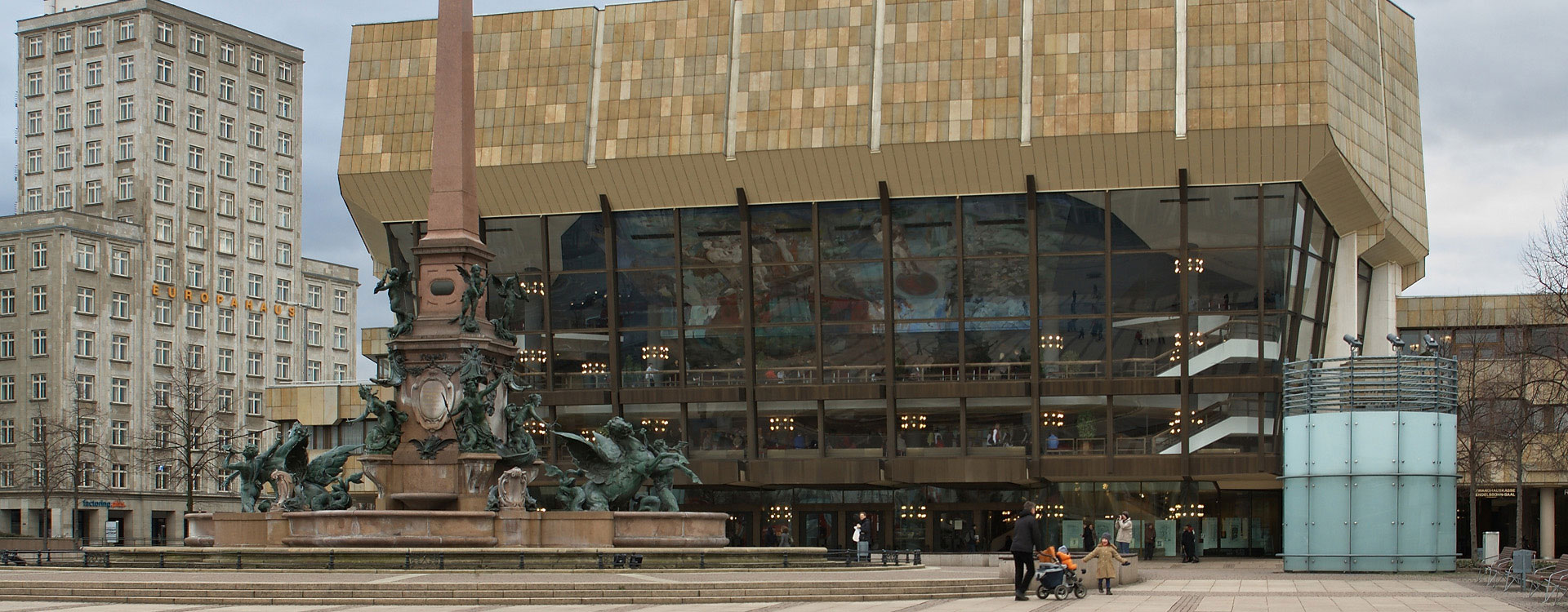
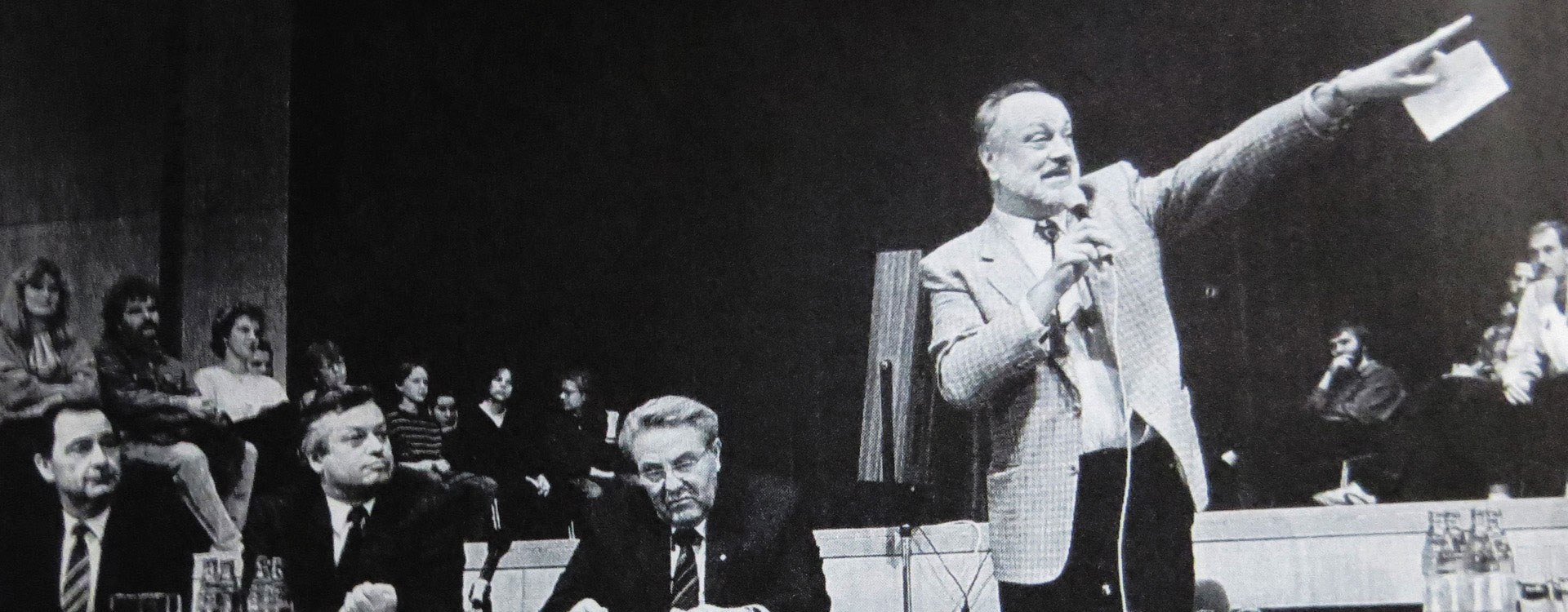

Classical Music and Cold War
Director: Thomas Zintl
Distributor: C Major Entertainment
Length: 53 min.
16:9 shot in 1080i HDTV | stereo & 5.1 surround sound
© 2009, a production of Wunderlich Medien for BFMI in co-production with RBB/arte and ORF
Distributor: C Major Entertainment
Length: 53 min.
16:9 shot in 1080i HDTV | stereo & 5.1 surround sound
© 2009, a production of Wunderlich Medien for BFMI in co-production with RBB/arte and ORF
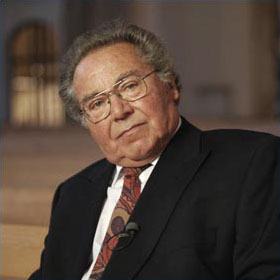
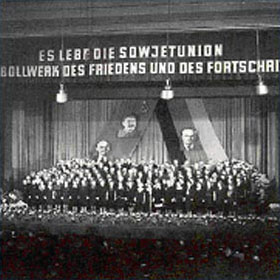
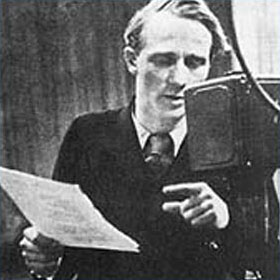
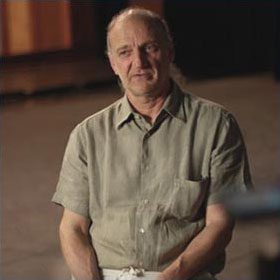
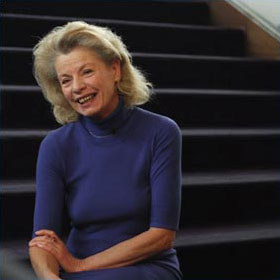
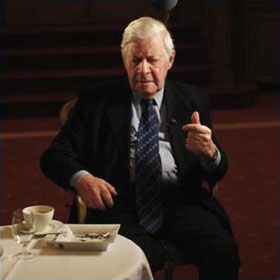
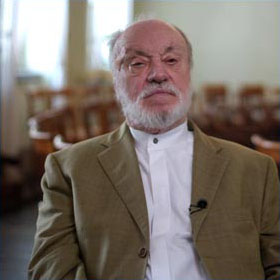
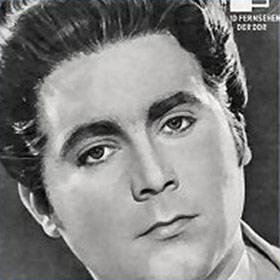
This is a documentary about classical music in the former German Democratic Republic (GDR). Within the historical background the film shows how important classical music was (and was exploited) for GDR’s political system and how it overcame the borders between East and West.
Like in sports the talented musicians were promoted and privileged. True to party- principles and good classic artists are ex- tremely representative and therefore gladly shown abroad. Although observed by the StaSi (secret police) the artists are free to travel as long as they come back. As classical music is considered as politically harmless music its education is highly encouraged in the former GDR. The regime discovers its big potential in generating smooth cultural exchange as well as the required currency import. Case studies of privileged and non-privileged individual fates deliver insight into the influence of the political system to artistic life.
Concert organizers and producers in the West discover GDR’s big classic potential and produce recordings in the GDR or with GDR artists. Classical music made in GDR becomes an export hit, thanks to e.g. the Staatskapelle Dresden, the Gewandhausorchester Leipzig and renowned artists like Franz Konwitschny, Kurt Masur, Kurt Sanderling, Peter Schreier and Theo Adam.
Interviews with some of the contemporary witnesses both from GDR and the Federal Republic of Germany (FRG) like Peter Schreier, Kurt Masur, Gisela Storrjohann (producer EMI-Electrola), Christoph Schmökel (legal advisor of Deutsche Grammophon), Bernd Runge (chief audio engineer for the recordings for Philips with Peter Schreier and the Meistersinger with Karajan) give insight to individual’s fate and are integral parts of the story.
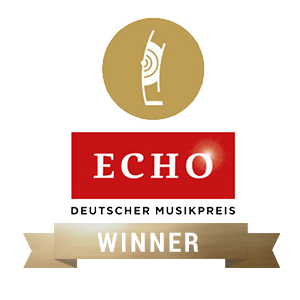
Echo Klassik 2013
Category: Music DVD Production of the Year
